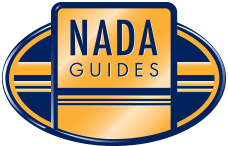Seventy-seven million households in America count camping as a must-do summer activity. Regardless of whether you're tenting or RV'ing, camping is an activity everybody can enjoy.
Using an RV, whether it be a motorhome or towable travel trailer, brings a whole new world of possibility for campers. No more shivering at night when the temperature dips down at night or excessive sweating during sweltering hot days. You don't even have to miss an episode of your favorite TV show if you bring your TV along with you.
RV'ing allows you to keep the amenities of home without losing the experience of being in the great outdoors. The problem is that brand new RVs are expensive. To remedy this, you should consider whether buying a used RV is right for you and your family.
You're probably wondering what to look for when buying a used camper. There are a lot of shady people out there trying to make a quick buck by selling lemons. Let our used RV buying guide serve as your handbook for finding the best camper so you can get out and enjoy traveling with your family.
See It in Person First
This is one of the best and most understated tips for buying a used RV. You should never buy anything without seeing it with your own eyes first. It's helpful if the seller sends photos, but you can't do a proper inspection of the vehicle through pictures alone. Several of the most severe problems with RVs can't be seen through images alone.
For example, it's imperative that campers are winterized at the end of each season. Otherwise, you could be dealing with burst water lines, broken plumbing fixtures, and failing toilets.
You'll also need to check the roof, sides and underbody seals of the RV — these need to be monitored and repaired if need be. Unchecked leaks and poorly maintained seals can destroy campers.
When you go to do your inspection, use your senses to check for other signs of abuse. Smell for lingering cigarette smoke as it can be challenging to get rid of. Check for signs of leaks and rust damage throughout the RV. Make sure the appliances work.
Learn Its History
Before you commit to purchasing a used RV, you're going to want to learn its history beforehand. Knowing how it was taken care of can tip the scales in either direction when it comes time to make your decision.
Storage
Was it kept inside during the winter months? Was it covered and kept outside? The best-case scenario is that it was stored in a garage when not in use. It's better to have it covered and kept outside than exposed to the elements for months on end.
Seal Maintenance
How often were the seals maintained? When were they last checked? What sealant did they use? When you go to inspect the RV, evidence of seal maintenance should be obvious.
Use
How often was the camper used? What are the miles on it? Was it lived in full-time? You'll probably not want to invest in a camper that's been used full-time or is nearing 200,000 miles.
Check the Roof
As we've already mentioned, visually inspecting the RV is critical. If you're not exactly sure what to look for, start with the roof.
If you're looking at an RV with a vinyl roof, it should be blister-free with no bubbling. Vinyl roofing that has been exposed to sunshine for extended periods will eventually bubble, blister, and leak.
RV's with metal rooves have seals that'll need recoating every year. Metal rooves are less expensive to maintain and repair than vinyl types. It's crucial to ensure that the wood material under the metal is not damaged, too.
Check to make sure that the vents and A/C units inside the camper have no discolorations or water stains nearby.
Inspect where the walls and ceiling meet. Open cupboard and closet doors to make sure you're doing a full inspection.
Check the Floors
Most RV floors are made from particle board, which will deteriorate once it gets wet. Be sure you're checking the floor around the kitchen and washrooms carefully. Don't be afraid to tap it to check if the wood is soft.
Be sure to check under the cabinets for signs of flooding or any wall discoloration near the floor. It can be expensive to repair flooring, especially if the joists have had a chance to decompose.
The good news is that carpet or vinyl flooring is inexpensive to replace. If you notice food or drink stains, don't let it deter you from purchasing.
Take it for a Spin
If you're considering a motorhome, you must take it for a test drive.
Pay close attention to how it handles on different terrain. Drive it around the city, but also take it out on the highway. You want to make sure that you're comfortable driving it in different situations.
Driving a motorhome is a much different experience than driving your car. Check how well you can see around the RV as you're driving. See how comfortable you are making turns and reversing.
Listen for any humming, rattling, squeaks, and other noises you may wish to bring attention to after the test drive.
Schedule an Inspection
It's one thing to look at the RV with your own eyes, but it's another to have a second more-experience set give it a once-over. We recommend having a pre-purchase inspection done on any camper you're considering purchasing.
An RV technician should be able to look at the vehicle and point out any problems or potential issues. It should only cost you a couple of hundred dollars to hire a professional, but it'll be worth it in the long-run.
Buying a Used RV Doesn't Have to Be Difficult
Now you've learned how to buy a used RV and sidestep any possible lemons that come your way. Buying a used RV should be an exciting time, but if you're still struggling with how to pay for it, let us help. Contact us to talk about your RV financing needs.
Happy trails!





